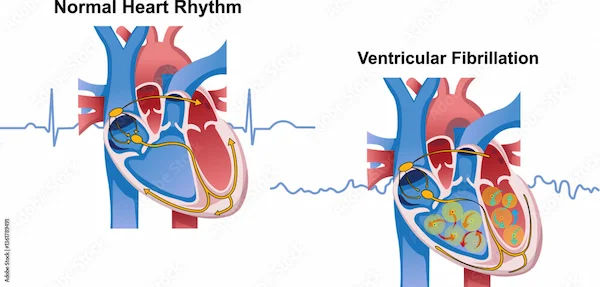Healthy Heart Water Substitutes
Explore a variety of heart-healthy water substitutes to keep your cardiovascular system in top shape. Find delicious, nutritious alternatives to plain water that support heart health and hydration.

Written by Dr.Sonia Bhatt
Last updated on 3rd Jul, 2025

Hydration is vital for maintaining heart health, as adequate water intake supports blood circulation, regulates blood pressure, and helps the heart pump blood efficiently. Staying hydrated reduces strain on the cardiovascular system, particularly during physical activity or in hot weather, when the risk of dehydration increases.
Conversely, consuming excessive sugary or caffeinated beverages can negatively impact heart health. Sugary drinks contribute to weight gain, insulin resistance, and inflammation, all of which elevate the risk of heart disease. Caffeinated beverages, when consumed in excess, may lead to increased heart rate, elevated blood pressure, and dehydration, as caffeine can act as a diuretic. Let's explore the substitutes of water for heart health in this blog.
Understanding Heart Health
The primary function of your heart is to circulate blood throughout your body, delivering oxygen and nutrients to your cells while removing carbon dioxide and other waste products, which are then eliminated by other organs.
In addition to this, your heart also:
Regulates the rhythm and speed of your heartbeat
Maintain your blood pressure
Common Heart Diseases and Their Causes
Heart disease refers to a variety of conditions that affect the heart. Common types include:
Coronary Artery Disease (CAD): The most prevalent form, CAD involves plaque buildup in the heart’s arteries, which can lead to a heart attack.
Rheumatic Heart Disease: Caused by rheumatic fever, often following strep throat or scarlet fever, this condition damages the heart's valves and muscle.
Congenital Heart Disease: A heart condition present at birth.
Arrhythmia: A disorder of the heart’s rhythm or rate.
Heart Failure: Occurs when the heart cannot pump sufficient blood to meet the body’s needs.
Heart Attack: A blockage of blood flow that causes part of the heart muscle to die.
Benefits of Staying Hydrated
Proper hydration is essential for cardiovascular function, as water plays a critical role in maintaining blood volume and circulation. When you are dehydrated, the amount of blood circulating through your body decreases, forcing your heart to work harder to pump blood and maintain adequate oxygen delivery to tissues. This compensation results in an increased heart rate, placing additional strain on the heart. Staying hydrated helps regulate blood pressure, supports efficient heart function, and ensures the transport of oxygen and nutrients throughout the body. By maintaining hydration levels, you reduce stress on the cardiovascular system and promote overall heart health.
Recommended Water Substitutes
The substitutes for water are as follows:
1. Herbal Teas
Herbal tea, despite its name, is not a true tea, as it doesn’t contain leaves or buds from tea plants. Instead, it is made from tisanes—infusions of dried fruits, flowers, spices, or herbs in water. Herbal teas like chamomile, peppermint, and hibiscus are naturally caffeine-free, hydrating, and rich in antioxidants. They provide a flavorful and soothing alternative to plain water while offering various health benefits depending on the herbs used.
Herbal teas can support heart health. For example, hibiscus tea has been shown to help lower blood pressure, while chamomile may aid in relaxation and stress reduction, both of which are beneficial for cardiovascular health. By promoting hydration, reducing inflammation, and providing antioxidants, herbal teas can play a supportive role in maintaining a healthy heart.
2. Infused Water With Fruits and Vegetables
Infused water, created by adding fruits like lemon, orange, or berries, and vegetables like cucumber or mint, naturally enhances flavour without added sugars or calories. It supports heart health by promoting hydration, which maintains healthy blood circulation and blood pressure. Additionally, the antioxidants and nutrients from the infused ingredients help reduce inflammation and oxidative stress, both of which are linked to improved cardiovascular function. By replacing sugary beverages, infused water further protects the heart and supports overall well-being.
3. Coconut Water
Coconut water supports heart health by helping remove excess sodium from the body through urine, thanks to its high potassium content. This balance between sodium and potassium is crucial for maintaining healthy blood pressure levels. Coconut water may be beneficial for individuals with high blood pressure, as it helps relax blood vessels, improving circulation and overall cardiovascular function. Its natural electrolytes also support proper heart muscle function, making it a heart-healthy hydration option.
4. Plant-Based Milk Alternatives
Some people avoid dairy milk due to allergies, intolerances, or personal preferences. For those who do, plant-based milk can be a good source of calcium. These alternatives are made from legumes, tree nuts, seeds, or cereals. Examples of plant-based milks include:
Soy milk
Almond milk
Rice milk
Oat milk
The nutritional value of plant-based milks depends on their main ingredient, added nutrients (like calcium and Vitamin D), and sugar content. Opting for plant-based milk isn’t always a healthier choice. When selecting one, check the nutrition label and choose a calcium-fortified option with little or no added sugar.
Other Heart-Healthy Beverages
Some of the other heart-healthy beverages apart from the above-mentioned beverages are as follows:
1. Red Wine (In Moderation)
When consumed in moderation, red wine can offer heart health benefits due to its high content of antioxidants, particularly resveratrol. These antioxidants help reduce inflammation, protect blood vessels, and increase levels of high-density lipoprotein (HDL), or good cholesterol, which is beneficial for heart health. Additionally, moderate consumption of red wine has been associated with improved blood flow and a lower risk of heart disease. However, excessive alcohol intake can lead to negative health effects, so it's crucial to enjoy red wine in moderation to reap its potential benefits without harm.
2. Green Tea
Green tea is packed with powerful antioxidants called catechins, which have been shown to support heart health by lowering levels of bad cholesterol (LDL), improving blood vessel function, and reducing blood pressure. Regular consumption of green tea may also enhance circulation and reduce inflammation, both of which are vital for maintaining a healthy cardiovascular system. Green tea helps with lowering a risk of heart disease, making it an excellent addition to a heart-healthy lifestyle.
Risks of Certain Beverages
Certain beverages can have a significant impact on heart health, especially when consumed in excess. Being mindful of beverage choices is essential for maintaining overall well-being and heart health.
1. High-Sugar Drinks and Their Impact
High-sugar beverages, such as sodas, sweetened juices, aerated drinks and energy drinks, pose significant risks to heart health due to its sugar content. Excessive sugar consumption can lead to weight gain, increased triglyceride levels, and insulin resistance, all of which contribute to a higher risk of developing heart disease, diabetes, and high blood pressure. Over time, a high-sugar diet can also lead to inflammation and oxidative stress, both of which damage blood vessels and the cardiovascular system. Reducing the intake of sugary drinks is essential for maintaining a healthy heart and overall well-being.
2. Caffeine and Heart Health
While moderate caffeine intake can offer some benefits, such as increased alertness and improved metabolism, excessive consumption may have negative effects on heart health. High caffeine intake can lead to increased heart rate (tachycardia), higher blood pressure, and may cause irregular heartbeats (arrhythmias) in sensitive individuals. For those with pre-existing heart conditions, excessive caffeine intake may exacerbate these issues. It's important to consume caffeine in moderation and to monitor its effects on your body, especially if you have a history of cardiovascular problems.
Tips for Incorporating Water Substitutes in Daily Routine
Incorporating water substitutes into your daily routine can be a refreshing way to stay hydrated while providing additional health benefits. Here are some simple tips to help you include them effectively in your day.
Start Your Day with a Healthy Beverage: Begin your morning with a glass of infused water, herbal tea, or coconut water to hydrate and energise your body.
Alternate Beverages Throughout the Day: Replace one or two servings of plain water with healthy substitutes like infused water, green tea, or plant-based milk to add variety and boost nutrient intake.
Pair with Meals: Enjoy herbal teas or lightly flavored infused water during meals to aid digestion and provide additional hydration.
Keep it Accessible: Prepare a pitcher of infused water or carry a thermos with herbal tea or green tea to encourage sipping throughout the day.
Choose Substitutes Wisely: Opt for beverages that are free of added sugars and artificial ingredients, such as calcium-fortified plant-based milk or unsweetened coconut water, to maximise health benefits.
Experiment with Flavours: Keep your routine interesting by rotating different fruits, herbs, and vegetables for infused water or trying various herbal teas and plant-based milk flavors.
Conclusion
Hydration is essential for heart health, and incorporating beverages like herbal teas, infused water, coconut water, and fortified plant-based milks offers both variety and added benefits. Options like green tea and moderate red wine can also support cardiovascular wellness when consumed responsibly. Avoiding sugary and high-caffeine drinks reduces risks associated with heart disease. By making thoughtful beverage choices, you can promote a healthier heart and overall well-being.
Consult Top Cardiologists
Consult Top Cardiologists

Dr. Amit. A. Bharadiya
Cardiologist
12 Years • MBBS, MD General Medicine, DNB Cardiology, FSCAI
Maharashtra
Surabhi Hospital, Maharashtra, Maharashtra

Dr. S B Bhattacharyya
Cardiologist
22 Years • MBBS, MD(General Medicine),DM (Cardiology)
Kolkata
Gariaheart Clinic, Kolkata
Dr. Jayarajah Mariappan
Cardiologist
45 Years • MBBS, MD(GEN MEDICINE), DM(CARDIOLOGY)
Chennai
Sooriya Hospital, Chennai

Dr. Sumanta Chatterjee
Cardiologist
12 Years • MBBS,MD General Medicine,DM Cardiology
Kolkata
HealthYou Speciality Clinic & Diagnostics., Kolkata
(25+ Patients)

Dr. Mangesh Danej
Cardiologist
8 Years • MBBS, MD (General Medicine), DNB (Cardiology)
Pune
Dr Danej clinic, Pune
(375+ Patients)

